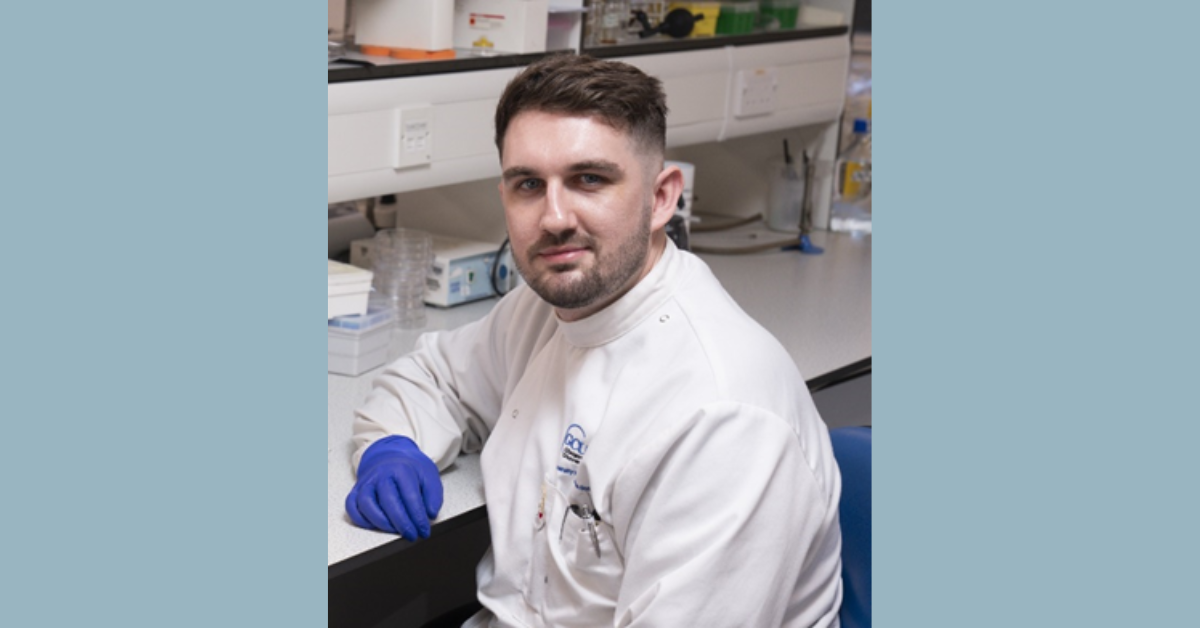Dr William Johnston (27), a British early-career microbiologist at Glasgow Caledonian University, studies hospital-acquired fungal threats. His latest paper in the Journal of Pathology, Microbiology and Immunology shows that Candida auris can persist on dry surfaces by forming biofilms that tolerate bleach-based cleaning—work led by Dr Alicia Ware and vital for infection control.
“Driven by the fact that research could lead to practical improvements in healthcare and deepen our understanding of disease”
What is your (latest) PMI article about in layman’s terms?
Candida auris is a drug-resistant fungus that spreads easily within hospitals. In this study, we investigated how well disinfectant protocols such as bleach (sodium hypochlorite) work against it, especially when it forms protective layers called biofilms on dry surfaces. Whilst bleach effectively killed free-floating cells, biofilms were much harder to eradicate and persisted throughout multiple disinfection cycles. This may help explain how C. auris survives hospital cleaning. The study was led by Dr. Alicia Ware as part of wider research into this dangerous fungus.
Read the study here
Why did you become a researcher?
I decided to pursue research as I enjoy solving problems and asking questions that don’t yet have answers. During my undergraduate studies and doctoral training, I was driven by the fact that research could lead to practical improvements in healthcare and deepen our understanding of disease. I enjoy the process of scientific discovery and the opportunity to contribute to work that could have a real-world impact, especially in areas such as infection control where the stakes are high and the challenges are complex.
Who inspires you academically?
I am lucky to have great mentors at GCU such as Gordon Ramage and Ryan Kean. More broadly, I also really admire Jessica Blair’s work on efflux pumps and Marvin Whitley’s work on infection modelling.
What research are you reading right now for inspiration?
I enjoy reading studies which effectively bridge computational biology and wet lab work, especially those confirming the function of differentially expressed genes through laboratory experiments as we have done in this study. I think this combination offers a good insight into biological processes.
What are your scientific aspirations?
I would like to lead a research group advancing our understanding of antimicrobial resistance and persistence, by integrating molecular biology with real-world applications. I am also interested in host-pathogen interactions and further improving the clinical relevance of our laboratory models in microbiology, beyond simple defined cultures.
Why did you choose PMI?
We chose to publish in PMI because it has a good reputation for publishing high-quality research in microbiology and infectious diseases. It has a focus on clinical relevance and translational science which aligns well with our work at Glasgow Caledonian University. Additionally, PMI reaches a wide international audience which help to maximise the impact and visibility of our research.
At PMI, we are committed to supporting early-career researchers in pathology, microbiology, and immunology. You can visit our young researchers’ universe HERE.
Find more information about publishing opportunities and our author guidelines HERE. Feel free to contact us if you have any questions or wish to discuss a potential submission – we’re happy to hear from you!


